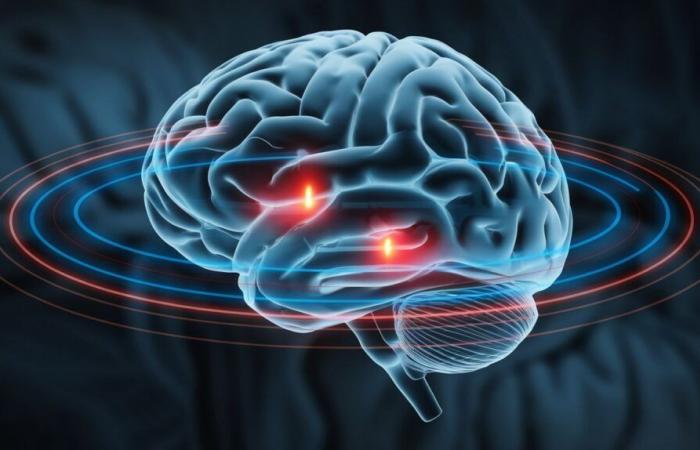Magnetic fields to control neurons remotely? Cutting-edge technology, magnetogenetics, now makes it possible to inhibit or activate brain circuits in mice remotely, without implants.
Scientists at Rockefeller University have modified genes to make certain neurons sensitive to magnetic fields. By monitoring the neural circuits linked to Parkinson’s disease, they observed a notable improvement in movements.
The method is based on proteins that can be activated by a magnetic field, injected into the heart of neuronal circuits. When the magnetic field acts, it triggers or interrupts theactivity neurons, without major surgery. The effectiveness of this technique has been tested on mouse whose Parkinsonian symptoms are reduced. By calming hyperactive neurons in the subthalamic nucleus, researchers alleviate disorders engines features.
According to the study published in Science Advancesthe absence of side effects is particularly encouraging. The magnetic fields used are of moderate intensity, which limits the risk ofactivation accidental.
Magnetogenetics could offer solutions to treat various pathologies such as depression or obesity. The potential applications even extend to the treatment of chronic pain, without the need for implants. Michael Kaplitt, neurologist and author of the study, envisions this technology in the clinic for neurological and psychiatric diseases. According to him, it constitutes a major advance in neurosciences.
Research continues to adapt this method to humans. The next steps will aim to refine the precision of this technology and broaden its scope of action.
What is magnetogenetics?
Magnetogenetics is an innovative technique that combines the gene therapy and the use of magnetic fields to control neuronal activity. It allows specific groups of neurons to be activated or deactivated without the need for implanted devices, providing a non-invasive approach to treating various neurological disorders.
This technology is based on the introduction of proteins sensitive to magnetic fields into targeted neurons. These proteins, derived from gene therapies, act like switches, allowing researchers to modulate the activity of neurons using external magnetic fields. Studies in mice have shown promising results, including a reduction in abnormal movements associated with Parkinson’s disease.
The interest of magnetogenetics lies in its potential for clinical applications. By allowing precise control of brain circuits, this method could transform the treatment of various pathologies such as depression, chronic pain and even obesity, while avoiding the complications linked to invasive techniques.






